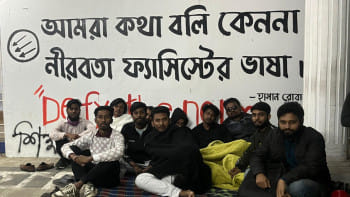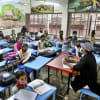Time to critically reevaluate the university quota system

Five months after the July uprising that championed a society free of discrimination and inequality, it is unfortunate that many of our public universities still have different types of quotas for enrolment. Among these, the ward or dependent quota, which grants preferential admission to the children of university staff and teachers, has sparked significant debate and protests of late. While students in some of the universities have called for the abolition of this quota, many staff members and teachers have voiced their support for its continuation. The question is, should such quotas persist in our universities? Do they even align with the spirit of the July uprising?
A Prothom Alo report has identified 11 types of quotas across eight major public universities, including Dhaka University, Jahangirnagar University (JU), Rajshahi University (RU), and Chittagong University. Among them, Bangladesh Agricultural University does not have a ward quota, while RU abolished it recently following protests. However, six other universities still retain this practice. Beyond the ward quota, other reserved categories include quotas for individuals with disabilities, children and grandchildren of freedom fighters, athletes, underprivileged ethnic minorities, non-indigenous people (Bangalees) living in hilly areas, foreign students, Dalits, tea workers, and students from BKSP (Bangladesh Krira Shikkha Protishtan). While many support the quota system for underprivileged communities, others argue that some categories, including the ward quota, are outdated and warrant abolition or rational reform.
While the complete removal of the ward quota seems ideal in principle, we recognise the concerns of staff members advocating for its retention. University authorities, therefore, must navigate these conflicting demands through dialogue and consensus. Any decisions regarding quotas must be uniform across public universities and, above all, consistent with the ideals of equality and fairness championed during the July uprising.
The system at JU, in particular, has drawn criticism for its lack of fairness. It reserves seats for the children, spouses, and even siblings of teachers, officers, and staff. Admission seekers under this quota are only required to pass the admission test to secure a seat. Even though the JU administration has capped the number of admissions under this quota to four students per department, it still appears inequitable when general candidates must compete with thousands for a single seat. Other public universities also have more or less seats reserved for the dependents, which undermine the principle of meritocracy. Surprisingly, JU even had a "vice-chancellor's quota," allowing the admission of 20 students at the VC's discretion—a practice recently abolished after student protests.
While the complete removal of the ward quota seems ideal in principle, we recognise the concerns of staff members advocating for its retention. University authorities, therefore, must navigate these conflicting demands through dialogue and consensus. Any decisions regarding quotas must be uniform across public universities and, above all, consistent with the ideals of equality and fairness championed during the July uprising.
We stand firmly with the protesting students and urge public universities to reform their quota systems. The admission process must be free from discrimination and designed to uphold merit and fairness. Only then can our higher education system reflect the values of an equitable society.

 For all latest news, follow The Daily Star's Google News channel.
For all latest news, follow The Daily Star's Google News channel. 










Comments